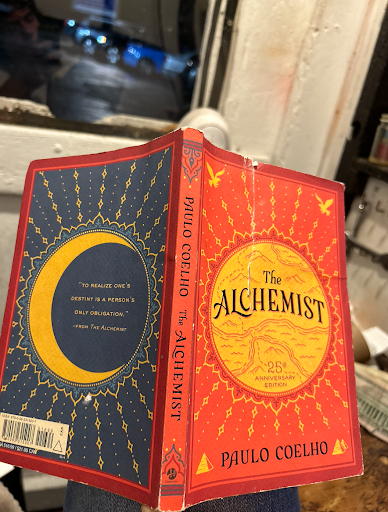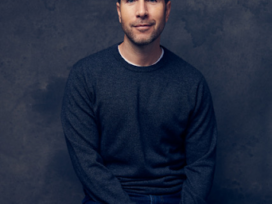
Journeying with “The Alchemist”
The Alchemist, by Paolo Coelho, tells the powerful story of a young shepherd following his personal legend shown to him through a recurring dream and the inherent interconnectivity of all people regardless of their background. The story aims to answer the question that all people have asked themselves at one point or another in their lives: what are we here for? Coelho attempts to answer this question through the idea of someone’s personal legend, his term for one’s destiny. This is perfectly put in a quote which is the only description given prior to reading the book, “To realize one’s destiny is a person’s only real obligation.”
The story begins with the protagonist Santiago awakening in an abandoned church in Andalusia after once again dreaming of the Egyptian pyramids with a small child playing with his flock. He tends to dislike when people approach his sheep as they are wary of strangers, but for some reason, children have never seemed to make them anxious. This makes Santiago question if there is a language that exists between all things without words. This child tells Santiago to go to the pyramids and find the treasure hidden there. After telling this story to a gypsy fortune teller, Santiago begins to learn more of this unspoken language: “Dreams are the language of God. When he speaks in our language, I can interpret what he has said. But if he speaks in the language of the soul, it is only you who can understand.”
The Alchemist is wonderfully unique in its story progression as it doesn’t bog the reader down with countless side characters whose roles are trivial and instead chooses to focus on one character for every section of the book, each relating a lesson to Santiago about the journey of life and his part in the grander story that is the world.
One point that is pressed thoroughly throughout the books is everyone in the world is contributing to the same story, “No matter what he does, every person on earth plays a central role in the history of the world. And normally he doesn’t know it.” People are often unaware of the larger role they play in other people’s lives, and I believe this quote summarizes that point beautifully.
This book is perfect for someone who has at one point or another questioned their role in life and the path they have chosen to pursue. Throughout the novel, Santiago continues to question if he made the right choice in pursuing his dream and at many points decides to give up and go back to being a simple shepherd. He is forced to resolidify his resolve many times after meeting with those to whom he can relate with his journey; he meets both those who have given up everything in the pursuit of those dreams along with those who have chosen not to pursue their dreams as they fear that after accomplishing that dream life will lose all its meaning.
I give this book a 5 out of 5 stars for perfectly describing the uncertainty that comes with chasing after a dream and the ways in which the people surrounding you influence the result. As long as someone’s resolve is strong enough and they are willing to learn lessons along that journey nothing is out of reach.






